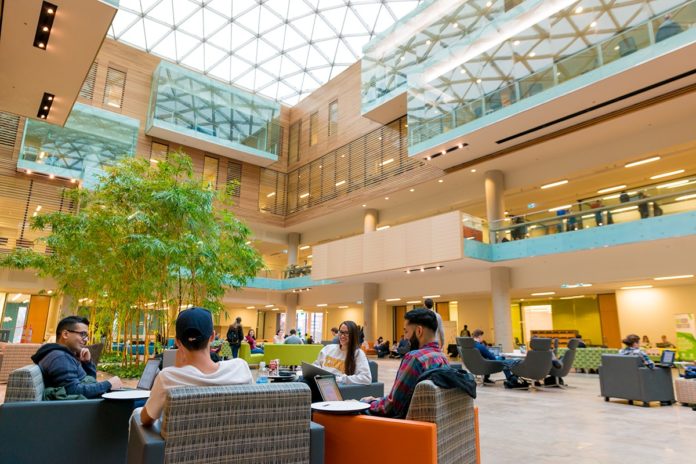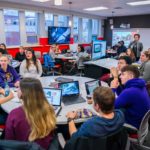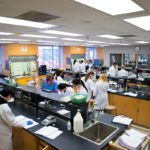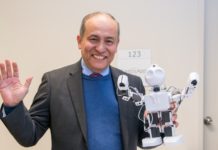Milton — Wilfrid Laurier University and the Town of Milton continue to work toward establishing a post-secondary site in this vibrant and fast-growing community.
As a leader in multi-campus, multi-community education, Laurier is a comprehensive university known for excellence in teaching and research, as well as a culture that inspires lives of leadership and purpose.
Last fall, Maclean’s magazine ranked Laurier No. 1 in its category for student satisfaction. Much of the credit goes to the university’s outstanding faculty. Here are just a few of the exceptional professors who contribute to Laurier’s reputation for academic excellence.
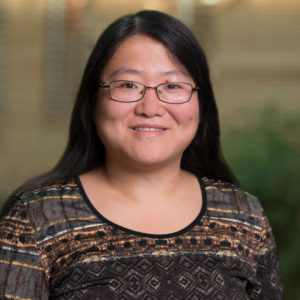
Sunny Wang
How many sheets of tissue should be in a box of Kleenex? How many close friends do you really have on social media? These are questions Laurier Professor Sunny Wang asks students to solve as part of a process she loves to watch unfold: the realization that statistics and big data hold immense power.
“I’m proud to be a data scientist,” says Wang. “From climate change to biomedical research, everybody is trying to make data-driven decisions — big data is a very vibrant and exciting field.”
Wang, who studied in China until she pursued her PhD in Canada, is an associate professor in Laurier’s Department of Mathematics. She calls it a privilege to develop learning tools that help understand what big data is trying to tell us.
“I’m a very curious individual,” says Wang. “I like to study all different types of data to extract useful information from all of the uncertainties — I love the challenge of developing proper approaches for analyzing large scale data and making informed conclusions Observations.”
Wang has conducted research in health, business, economics and finance related fields. She has analyzed the diet and physical activities of students in Nova Scotia. She has contributed to a nine-year study on mother and infant skin-to-skin contact. She has been nowcasting the Canadian inflation rate using oil prices and the consumer price index. And, she has looked at the vulnerability of Canadian charitable organizations using their financial information.
“Keeping up with the newest techniques in my field benefits not only myself, but also my research students, who can see their own research work as meaningful,” says Wang.
She supervises graduate students and offers research assistantships to students interested in developing statistical learning and data-mining techniques.
“At the beginning, students have little knowledge about the power of statistics,” she says. “I find really unique ways to show them how statistics and data analysis is a tool that everyone can use to make better decisions.”
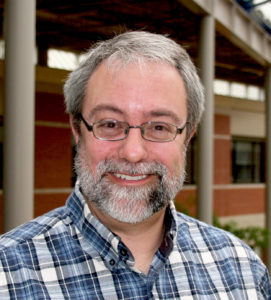
Scott Smith
“I can vividly remember it — it just didn’t seem right,” says Scott Smith, professor in Laurier’s Department of Chemistry and Biochemistry, in reference to an early childhood memory of garbage lining a ditch in his hometown of Sault Ste. Marie, Ontario. Since then, Smith knew what he wanted to do with his life — and he has dedicated his career to researching aquatic systems and environmental Regulations.
Smith teaches chemistry, supervises students, and provides them with research opportunities linked to his own Projects.
“As an experimental scientist, I look at issues such as establishing safe and appropriate limits for metals, nutrients and the discharge of different pollutants in water,” he says. While Smith has conducted fieldwork across the globe, he does virtual fieldwork from his lab in Waterloo, with samples of seawater, estuarine water, freshwater, bog water and wastewater that are shipped to him from around the world.
“You have to think you’re making a difference and improving the world because of your contributions,” he says. “That makes the hard work worth the Effort.”
Smith and his lab have found success by making contributions to important pieces of regulation. The United States Environmental Protection Agency’s draft criteria for marine copper draws heavily on his work, as does the design of modern wastewater treatment plants, which are now constructed differently in order to maximize phosphorous removal based on Smith’s work at Laurier.
For the all success he has had, Smith is quick to praise Laurier students. “From Laurier’s undergraduate students to post-doctoral fellows, they’re critical to the science,” he says. “I might be modelling and interpreting, but our science students make the measurements and drive the research forward. If it weren’t for them, I wouldn’t accomplish nearly as much.”
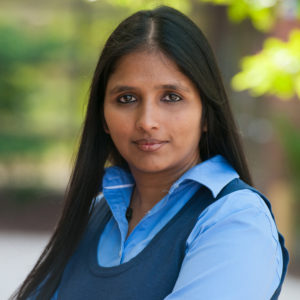
Shohini Ghose
She has been called Laurier’s “quantum woman.”
A renowned physicist, Shohini Ghose is an award-winning professor who researches quantum information science, which explores how nature behaves at the tiniest levels. Ghose teaches in Laurier’s Department of Physics and Computer Science, and this year, a group of her students were successful in writing programs to run on IBM’s quantum processor.
As founding director of Laurier’s Centre for Women in Science (WinS), Ghose is also a champion of women in the fields of science, technology, engineering and mathematics (STEM). WinS provides opportunities such as annual scholarships and grants to support outstanding female students, and research about gender issues in STEM.
“When we have these programs or special positions for women, let’s say in academia or grants or support systems for women who want to start their own businesses, you’re not sacrificing meritocracy and that’s really important,”says Ghose. “We shouldn’t really be talking about this as a means of ‘helping’ women because it implies there is something missing and that women are somehow behind in some way.”
Ghose says that the data shows quite the opposite.
“Women who do succeed in science, those who are successful, tend to be twice as good as men who may not have had to face the same challenges.”
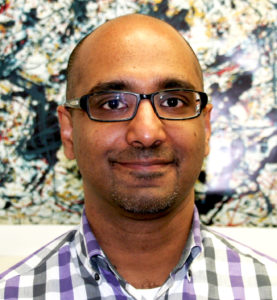
John Abraham
Is the world coming unhinged? From identity based conflict and global financial volatility to the irreversible damage caused by climate change, we might be veering towards the Brink. What can one person do about such global challenges? These are the questions Professor John
Abraham asks Laurier students, as they explore how global processes, cultures and communities interact with each other. Abraham, who was raised in Dubai, teaches in the Department of Global Studies. He believes that part of the solution can be found through social entrepreneurship and social innovation.
“Governments and the markets have made great strides in addressing many challenges in the last 70 years but there are particular problems that have proven harder to crack,” he says.
“Social innovations like microfinance and community-based conservation have shown a great deal of promise in addressing such problems over a short period of time.” Social entrepreneurship combines deep empathetic understandings of social challenges with the organizational capacity, entrepreneurial skills and financial sustainability to make a lasting and positive impact.
At Laurier, Abraham champions the concept of social innovation through the CityStudio partnership with the City of Waterloo.
CityStudio Waterloo is an innovation hub where, among other activities, students participate in a 14-week experiential learning course. They work with city staff and the community to co-create solutions that support the city’s strategic priorities and community needs.
“Waterloo has transformed into this thriving knowledge and high-powered tech economy,” he says. “Cities that undergo this kind of shift often experience substantial change in a short period of time — we’re seeing that in the local real estate market. But there are also intractable social challenges that Emerge.”
Abraham says that social innovation emphasizes understanding large complex problems and identifying leverage points to produce better and more desirable outcomes.
“It’s exciting that we’re having students engage complex community issues in constructive ways,” he says. “What’s more exciting is the emphasis that Laurier’s pedagogy is placing on greater engagement with each other and activities outside of the classroom.”
“We’re shaping students who are really prepared to act in the global knowledge economy.”


